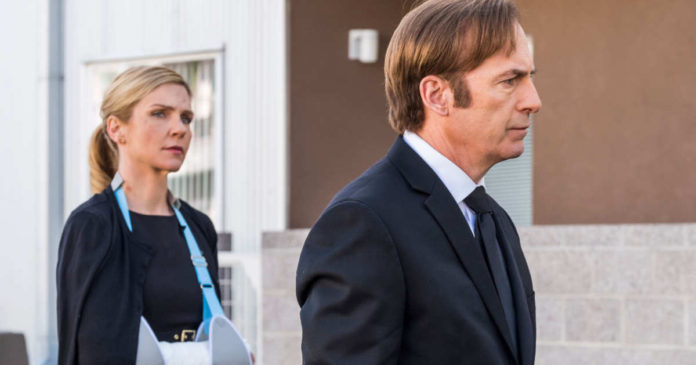Charles Lindbergh McGill had quite a lot in common with the famous aviator who inspired his first and middle names. After all, they were both child prodigies from the Midwest who achieved considerable wealth and respectability in their chosen field. The original Charles Lindbergh, however, was a noted anti-Semite. Chuck McGill, on the other hand, brought the force of his prejudices down on one man: his brother Jimmy.
That goes a ways toward explaining how Jimmy, sitting in the front pew for Chuck’s funeral, could do little more than gaze at an image of his late, lone family tie as if it were an abstraction. What to make of this man who could never focus on Jimmy as anything other than a threat to his self-imposed burden of greatness? Of a man who’d helped wedge a brotherly divide so vast that he’d likely have preferred Jimmy go unmentioned among his survivors in a newspaper obituary?
Maybe, as it turns out, that’s someone else’s cross to bear. Perhaps it’s Howard’s, given how he all but volunteers for the job amid a tearful confession about forcing Chuck out of the firm he co-founded nearly a quarter century earlier. Let him have it, Jimmy seems to figure. Let Howard inherit this curse, this life sentence of suffering under Chuck’s tyranny.
Chuck’s apparent decision to dramatically take his own life is, in one sense, the inevitable terminus of his illness, an ultimate demonstration of his incapacity to cope with what he can’t control. Granted, Jimmy’s not being true to himself or anyone else by remaining mum about his role in screwing HHM with their malpractice insurer. He is, however, breaking the hold Chuck’s had over him for decades, and making a choice to live with no lingering obligation to a man that wielded disapproval to his death.
As it happens, Jimmy’s own story doesn’t end even more ingloriously on the cold tile floor of an Omaha Cinnabon. The season-opening flash-forward (which, as I’ve written elsewhere, I’m convinced occurs in 2057) shows us Gene Takavic nee Jimmy from the perspective of rubbernecking mall patrons and through…










